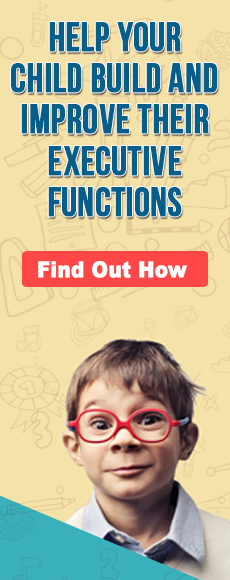See below for answers to many of our most frequently asked questions. If you don’t find the information you’re looking for, drop us a line at support@learningworksforkids.com.
Account Problems
I'm having difficulty logging into my account. What do I do?
Try logging in from the direct login page here:
https://learningworksforkids.com/log-in
You can also use this page to reset your password. If you are still having trouble, email our support team at support@learningworksforkids.com
I forgot my password. How do I get a new one?
You can request a new password by clicking the Lost Password link on the direct login page here:
https://learningworksforkids.com/log-in
If you are still having trouble, email our support team at support@learningworksforkids.com
How do I cancel my account?
In order to cancel your account, you need to log in, then go to your Manage Account page.
In the Account information section, there will be a link you can use to cancel your account.
Membership Questions
I just became a Premium Member. Where do I find the games my child can play online?
For customized recommendations of online games, click on the Kids Page button at the top of your child’s Learning Profile.
To brows all of our online learning games, go to the Play Now section of our Game Search Page here:
Do you offer a free trial subscription of the Premium Membership?
We do not offer a trial of our Premium Membership, but the free Basic Membership will give you a Learning Profile, and access to a few of our Play Now games and Play Prescriptions.
Video Games Questions
Why do we not have guides for M-Rated Games such as the Call of Duty series?
The team at LearningWorks for Kids has concerns about the impact of violent games on our target audience, children under the age of 14. While the research does NOT indicate that playing violent games makes kids more likely to commit violent act, it does clearly suggest a desensitization to observations and experience of violence. We believe that this is problematic for younger children. With the exception of those with mental illness, older teens and adults are typically able to recognize the screen-based nature of the violence in M-rated games and not have it be an issue in their psychological adjustment. Here are some blog posts to provide you with more detailed information:
How much time should I let my elementary school-age child play video games?
The standard answer that we give is approximately one hour per day. This recommendation is supported by extensive research indicating that one hour per day can actually improve cognitive functioning and mental health adjustment in children. However as with many things, one size does not fit all. For example, if you have a child who is struggling with his schoolwork and refuses to complete his homework, less time may be appropriate. A child who struggles to transition from video games to other activities or insists on playing video games as his sole activity may do best with a weekend and vacation-only schedule. Here are some blog posts to provide you with more detailed information:
How much should my toddler play with video games and other screen-based technologies?
Until recently the American Academy of Pediatrics recommended that children under the age of two have no interaction with screen-based technologies. They have softened this position, in part because of our changing world in which this dictum was essentially unenforceable. Also, there is an increasing recognition that screen-based technologies offer many opportunities for toddler to learn. Should you choose to let your toddler have digital-media time, keep in mind that the best and most important type of play for toddlers involves social interactions and physical, sensorimotor play. Experiencing and touching their environment is the key to learning and development for toddlers. As a result, screen-based play is best kept at a minimum. All screen-based play with toddlers should be interactive and involve other other people, typically adults and older siblings. Here are some blog posts to provide you with more detailed information:
How much should my preschooler play with video games and other screen-based technologies?
Preschoolers should have very clear limits on the use of digital media, as other forms of play are crucial to their development. Preschoolers are beginning to learn how to navigate their worlds of play and social environments. Nonetheless, video games and screen-based technologies are now a part of the preschooler’s world, and many technologies are increasingly being designed specifically with preschoolers in mind. For example, the Amazon Fire Kid’s edition is designed for children between the ages of 3 and 6. Ensuring that a preschooler plays with only appropriate material without violence or frightening content is important. Typically, play sessions of 30 minutes should be a maximum for preschoolers. Adult or older sibling supervision is also strongly recommended. Here are some blog posts to provide you with more detailed information:
How much should my high school student play with video games and other screen-based technology?
As unbelievable as it sounds, the typical teenager in 2016 spends approximately nine hours per day using digital media. While this includes listening to music and talking and texting on a cell phone, it is still an amazing amount of time to spend in front of a screen. While parents might attempt to limit a high school student to one hour a day of video-game time, it is important for teenagers to have access to cell phones, computers, and social media, as these tools are their main methods of communicating and socializing with peers. While many parents express discomfort with an excess of electronic communication, it is certainly a 21st century reality. Parents are encouraged to help teens recognize the value of face-to-face interaction but not to deny them the opportunity for digital communication. Here are some blog posts to provide you with more detailed information:
Is it OK for my child to watch videos of other people playing video games?
One of the most common activities for 21st century children is watching “Let’s Play” videos on YouTube. Instead of playing a video game, millions of kids watch an expert play the game and make commentary. The team at LearningWorks for Kids views watching YouTube videos as akin to watching television. It is more passive than video-game play, but at the same time offers an opportunity to improve skills at game play. Many kids who enjoy Let’s Play videos feel connected with the YouTuber who produces them, feeling almost as if they were a friend. We suggest that parents consider watching YouTube videos as television time. Here are some blog posts to provide you with more detailed information:
Is playing video games bad for my child?
As in many things in life, moderation is the key. The data strongly suggest that kids who spend more than three hours a day playing video games perform more poorly in school, have more mental health issues, and are more likely to be isolated from other people. While playing for an hour a day is associated with positive outcomes, even the benefits of playing for this amount of time is nuanced. Playing violent or mindless video games can be a waste of time, or worse. Keep in mind that many games that may appear to be mindless are in fact cognitively challenging. For example, games such as Angry Birds, Star Wars Battlefront, and Smarty Bubbles practice a variety of executive-functioning skills. Here are some blog posts and videos to provide you with more detailed information:
How do I get my child to do something other than play with a screen?
In today’s world screens are incredibly alluring. While it’s really hard for kids to ignore their screens, the same thing is true for adults. Think about how much time you and other adults you know spend in front of a computer, watching television, or checking for messages on your cell phone. In today’s world it takes a concerted effort to get kids away from their screens. The key strategy is to get kids engaged in other activities. Parents need to make activities available; expect their kids to participate in physical, social, and creative play; and model these behaviors. Our approach to balancing screentime with other activities at LearningWorks for Kids is based upon developing a healthy “Play Diet.” Rather than being rigid with the amount of time kids use technology, our recomendation is to ensure that kids are involved daily in outdoor physical play, social face-to-face interactions, and opportunities for creative and unstructured play. Here are some blog posts to provide you with more detailed information:
What can I do if all my child wants to do is play video games?
Drastic measures sometimes need to be taken with kids who are insistent on spending all of their time in front of screens. These children may need to earn screen time as a reward, be limited to the weekends, or understand that all screens are solely in the possession of their parents. Children typically learn to adjust and then respond to more reasonable limits if these extreme measures are taken. Our experience of LearningWorks for Kids is that children who are insistent in these circumstances are also likely to have other behavioral, emotional, or addictive qualities in their approach to the world. Here are some blog posts to provide you with more detailed information:
Video Games and Kids Questions
Are video games helpful for kids with ADHD?
If you watch a child with ADHD play video games, you’ll probably see a very high level of focus, attention, and persistence. Paying attention and trying hard at anything typically enables people to get better at things. Many popular video games, including action and puzzle games, practice skills that can improve focus and attention. There are also some innovative video game-like technologies such as Cogmed Working Memory Training and Project Evo that have been designed specifically to address the needs of individuals with ADHD. While the research on these games is in its infancy, there have been many promising results. Here are some blog posts to provide you with more detailed information:
Are video games helpful for kids with Autism Spectrum Disorder?
Video games and apps are powerful tools to teach children with Autism Spectrum Disorder skills such as cognitive flexibility, understanding facial expressions, and improving communication skills. While there are concerns that children with Autism Spectrum Disorder can become overly engaged with highly unique characters in game play, video-game play can allow children with autism to have a shared interest with their peers. Children with autism need to have game play closely regulated by their parents so that they don’t spend too much time in front of a screen and not interacting with others. Here are some blog posts to provide you with more detailed information:
Are Video Games good for Kids with Autism
What the Research says about Video Games and Kids with Autism
Are video games helpful for kids with learning disabilities?
Many popular games and apps practice academic skills in a fun and engaging manner. For example, many legend of Zelda games required reading in order to progress in the game. Practicing academic skills is a frustrating and at times almost painful experience for many children with learning disabilities. However, engagement with video games and apps that practice math, reading, and other academic skills can provide extended practice of these skills. Using these apps and games as a supplement to a child’s schoolwork can be very beneficial. LearningWorks for Kids is particularly interested in how these apps and games can be used as summer activities to avoid the summer slump that many children with learning disabilities may experience because of the lack of academic practice when school is not in session. Here are some blog posts to provide you with more detailed information:
Why Video Games are Good for Kids with Learning Disabilities
Are video games helpful for kids with anxiety and depression?
Video games can be helpful with anxiety and depression for a number of reasons. They can provide an opportunity to share an experience with tears, enjoyment, and engagement. At the same time, children with anxiety or depression can become isolated in video-game play, particularly if parents do not actively supervise the amount of time they are engaged with it. Insisting on physical activity after a session with video games can be helpful for kids with anxiety and depression. Here are some blog posts to provide you with more detailed information:
LearningWorks for Kids Questions
What is the best way to use the LearningWorks for Kids website to help my child improve executive-functioning skills?
It is important to determine areas of strength and weakness in order to improve executive-functioning skills. We suggest becoming a premium member by having a parent complete our test of executive and academic skills to provide a specific cross-section of your child’s executive skills and weaknesses. Then, follow our prescriptions and recommendations that are developed in your child’s profile.using the games and apps that are recommended. it is also important to engage in regular discussion about these skills and to use the make-it-work activities that practice game-based skills in the real world. This is the key to using games to improve real-world executive-functioning skills. In addition, our Kids’ Pages, which are accessible only to premium members, have hundreds of games and videos that your child can play and watch on his own that will directly help him to improve his executive-functioning skills. Watch these videos to learn more.
How to use LW4K Game an App Guides
How to Use Your Child’s LW4K Profile to Improve Executive Functions
What is the best way to use the LearningWorks for Kids website to help my child improve social skills?
Most video-game play is now social in nature. As a parent, one of the most important things you can learn from the LearningWorks for Kids website is which games your child could play to help him interact and engage with his peers. Games such as Minecraft and Super Mario Brothers provide this opportunity if you encourage your child to talk with his peers at school about his game play. In addition, parents who play these games with their children have the opportunity to work on developing social skills, as the children may need to use skills such as empathy and metacognition to be successful in game play. Here are some blog posts to provide you with more detailed information:
What is the best way to use the LearningWorks for Kids website to help my child improve reading skills?
Become a premium member of LearningWorks for Kids, complete our test of executive and academic skills and find a set of recommended games and apps that can improve reading skills for your unique child. Not only will the child’s profile provide you with great games and apps to improve reading, but it will also target them based upon your child’s age, provide a step-by-step approach to using these games, and link you to dozens of articles on using games and technology to improve reading. There are many video games and apps that provide opportunities for reading improvement, some simply by requiring a child to do some reading in the game in order to make progress. Games that require reading such as the Legend of Zelda and Professor Layton provide opportunities for children to practice reading skills, given the level of motivation many kids have for beating a video game. Many fun apps also provide an opportunity to learn basic reading skills from basic rhyming and phonological skills to games that expand a child’s vocabulary. Here are some blog posts to provide you with more detailed information:
What is the best way to use the LearningWorks for Kids website to help my child improve math skills?
First, become a premium member at LearningWorks for Kids by completing the test of executive and academic skills. This measure assesses your child’s math skills; provides you with specific games and apps that can practice these math skills; and helps you to develop a step-by-step, fun method to practice areas of math weakness. In addition the Kids Pages, which are available only to premium members, will give you child games that practice math skills without him feel as if he is answering questions on a worksheet. One of the keys to improving math skills is to commit basic math facts to memory. This requires practice that may not be very much fun in a traditional school setting, but far more engaging in the apps and games that we recommend on LearningWorks for Kids. Here are some blog posts to provide you with more detailed information:




